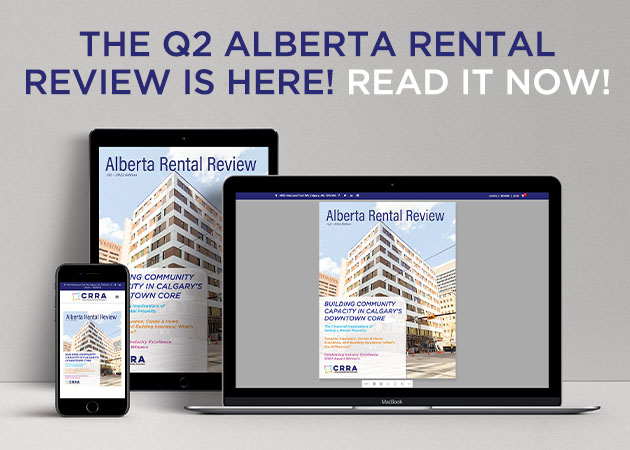Understanding Tenancy Laws in Alberta
Before delving into specific rights and responsibilities, it’s essential to have a grasp of the legal framework that governs tenancy in Alberta. The Residential Tenancies Act (RTA) is the primary legislation that outlines the rights and obligations of both landlords and tenants in the province. The RTA sets out rules for rental agreements, security deposits, rent increases, and eviction processes.

Tenant Rights in Alberta
- Right to a Safe and Habitable Home
- As a tenant, you have the right to live in a property that meets basic health, safety, and building code standards.
- Landlords are responsible for ensuring the property is maintained in a safe and habitable condition, including providing working smoke detectors and carbon monoxide detectors.
- Right to Privacy
- Tenants have the right to privacy in their rental unit. Landlords must provide notice before entering the premises, except in cases of emergency.
- Typically, landlords must provide at least 24 hours’ written notice before entering the rental unit for non-emergency reasons.
- Right to Quiet Enjoyment
- Tenants have the right to “quiet enjoyment” of their rental unit, meaning they can live in the property without unnecessary disturbances.
- Landlords cannot interfere with this right by entering the unit without notice or disrupting the tenant’s peaceful enjoyment of the property.
- Right to a Written Tenancy Agreement
- In Alberta, most landlords are required to provide tenants with a written tenancy agreement.
- The lease should outline key terms such as the duration of the tenancy, rent amount, security deposit details, and rules regarding pets and smoking.
- Right to Notice for Rent Increases
- Landlords must provide tenants with proper notice before increasing the rent.
- The notice period for rent increases in Alberta is typically three months for yearly leases and one month for monthly leases.
- Right to Request Maintenance and Repairs
- Tenants have the right to request necessary repairs and maintenance to keep the property in good condition.
- Landlords are legally obligated to address these requests promptly and maintain the property to a reasonable standard.
- Right to a Return of Security Deposit
- When a tenancy ends, tenants are entitled to receive their security deposit back, minus any allowable deductions.
- Landlords must provide an itemized list of deductions, such as unpaid rent or damages beyond normal wear and tear.

Tenant Responsibilities in Alberta
- Paying Rent on Time
- One of the primary responsibilities of tenants is to pay rent in full and on time.
- Failure to pay rent can lead to eviction proceedings, so it’s crucial to prioritize this obligation.
- Keeping the Property Clean and Tidy
- Tenants are responsible for maintaining cleanliness and tidiness within their rental unit.
- This includes regular cleaning, proper garbage disposal, and avoiding activities that could cause damage.
- Reporting Maintenance Issues Promptly
- It is the tenant’s responsibility to report any maintenance issues or repairs needed in a timely manner.
- Prompt reporting can prevent minor issues from becoming major problems and helps maintain the property’s condition.
- Respecting Property Rules and Regulations
- Tenants must adhere to the rules and regulations outlined in the lease agreement and building policies.
- This may include restrictions on noise levels, smoking, pets, and the use of common areas.
- Notifying Landlord of Extended Absences
- If a tenant plans to be away from the rental property for an extended period, it’s important to notify the landlord.
- This allows the landlord to make arrangements for property maintenance and security during the absence.
- Avoiding Damage to the Property
- Tenants are responsible for avoiding intentional or negligent damage to the rental property.
- This includes avoiding activities that could lead to property damage, such as unauthorized renovations or alterations.
- Cooperating with Move-Out Procedures
- When the tenancy comes to an end, tenants must cooperate with move-out procedures.
- This includes returning keys, cleaning the property, and attending a final inspection with the landlord.

Resolving Disputes
In the event of disagreements or disputes between landlords and tenants, there are steps that can be taken to seek resolution:
- Communication
- Open and clear communication is often the first step in resolving disputes.
- Discuss the issue with the other party to see if a mutual agreement can be reached.
- Mediation
- Mediation services are available to help landlords and tenants resolve conflicts.
- A neutral third party mediator can facilitate discussions and assist in finding a resolution.
- Dispute Resolution Services
- The Residential Tenancy Dispute Resolution Service (RTDRS) offers a formal process for resolving disputes.
- This service provides a fair and impartial hearing to address issues related to evictions, damages, unpaid rent, and more.
- Legal Advice
- In complex or contentious situations, seeking legal advice from a tenant advocacy organization or lawyer may be necessary.
- Legal professionals can provide guidance on tenant rights, obligations, and legal options.
Understanding your rights and responsibilities as a tenant in Alberta is key to a positive and successful rental experience. By familiarizing yourself with the Residential Tenancies Act, maintaining open communication with your landlord, and fulfilling your obligations, you can enjoy a safe and comfortable living environment while respecting the property owner’s rights. Should disputes arise, know that there are resources and services available to help resolve conflicts and ensure a fair outcome for all parties involved.
Remember, a well-informed tenant is a empowered tenant, ready to make the most of their rental experience in Alberta. This article aims to serve as a comprehensive guide for tenants in Alberta, providing valuable insights into their rights and responsibilities within the rental landscape. From legal frameworks to practical tips, tenants can use this resource to navigate their tenancy with confidence and ensure a positive relationship with their landlords.







